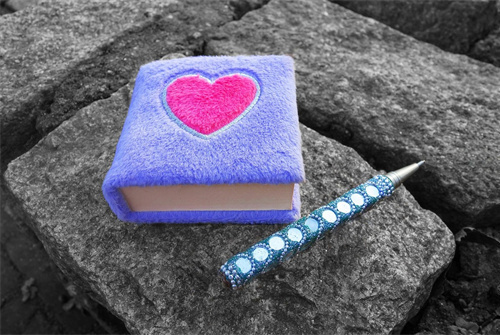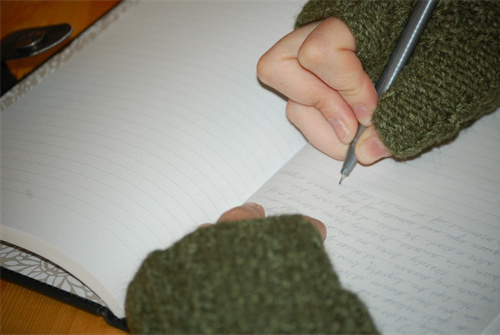高三英語(yǔ)作文匯總

在日常的學(xué)習(xí)、工作、生活中,肯定對(duì)各類(lèi)范文都很熟悉吧。那么我們?cè)撊绾螌?xiě)一篇較為完美的范文呢?下面是小編幫大家整理的優(yōu)質(zhì)范文,僅供參考,大家一起來(lái)看看吧。
高三英語(yǔ)作文篇一
i’m li hua, one of your students in china. it’s almost a month since you left us. we all miss you and are very grateful for what you did for us.
we are busy as usual. we had an english speech contest the other day. i won the first prize! this again reminds me of all your kind help. do you still remember the trees we planted together on the hill behind the school? yesterday, we went there and watered them. the tree you planted yourself is growing well, and the whole class decided to name it sue wood. will you come back to see sue wood?
how is everything with you lately? we hope to know more about you and your american students. hope to keep in close touch.
all the best.
yours,
li hua
高三英語(yǔ)作文篇二
人人都想成功,但是生活中失敗卻不可避免。作為一名高中生,我們?cè)撊绾慰创。空?qǐng)結(jié)合以下提示用英語(yǔ)寫(xiě)一篇短文。
失敗的積極意義
1.有助于認(rèn)識(shí)自身優(yōu)缺點(diǎn)
2.促進(jìn)自我提高
3.……
應(yīng)對(duì)失敗的措施
1.勇敢面對(duì)
2.分析原因
3.……
自我感受……
注意:
1.對(duì)所有要點(diǎn)逐一陳述,適當(dāng)發(fā)揮,不要簡(jiǎn)單翻譯。
2.詞數(shù)150左右。開(kāi)頭已寫(xiě)好,不計(jì)入總詞數(shù)。
3.作文中不得提及有關(guān)考生個(gè)人身份的任何信息,如校名、人名等。
all of us experience failure and are afraid of it. however, every coin has two sides. __________
參考范文
all of us experience failure and are afraid of it. however, every coin has two sides. failure also has its advantages. it provides us with an opportunity to see our strengths and weaknesses clearly, enabling us to find what is the most suitable for us. on the other hand, failure can be a good teacher. it tells us where we need improvements, where we should invest more time and energy, and what strategy to take.
failure is something unavoidable. properly handled, though, it can teach us a lot. firstly, we should face it bravely instead of complaining about the unfairness of life. secondly, we should analyze the reasons 高三英語(yǔ)作文 作為一名高中生,我們?cè)撊绾慰创imely to avoid making similar mistakes. last but not least, we are supposed to make appropriate changes and more efforts. only in this way are we more likely to succeed.
as for me. i have a positive attitude towards failure, because i believe there is always wisdom to be learned from failure. i will keep in mind that failure is the mother of success.
高三英語(yǔ)作文篇三
we live in the world every day. we eat food, drink water, wear clothes, watch tv, use computers and so on. we are producing waste every moment.
generally speaking, there are four sorts of waste. they are material waste, organic waste, inorganic waste and poisonous & harmful waste. now, we are going to talk about each sort of waste one by one.
material waste: it means the waste of substance or things from which something else can be made. for example, people throw away the used metal products and buy a new one, so the old metal waste accumulates. at last, they become waste. for example, when people finish reading newspaper, the paper will become waste. when the glass is broken, it also becomes waste. nobody wants to use a broken window or drink with a broken glass or wear a pair of broken glasses. once it is broken, it becomes waste. the rate of using plastics is increasing day by day. people use plastic bags because they are convenient. when they get home, they throw the plastics way, paying no attention to the environment. the more convenience plastics brings to us, the more plastic waste is produced. this is called white pollution as most plastics are white. some of our products we use every day are made of rubber, just like the tyres and the bottom part of our shoes. it’s true that rubber plays an important role in our life. however, it also brings us some trouble when it has been used for a long time and becomes old. the old tyres become waste because it can’t break down by nature. this is really a big problem.
organic waste: it refers to waste from living things, including waste from animals, plants and people. some parts of vegetables are thrown away as waste because they don’t taste good. in the past, people cooked their food using burning coal, so there left the burned coal, which is useless, like the thrown vegetables. all this sorts of waste contain organism, so it is called organic waste.
actually, we also have inorganic waste, the opposite to organic waste, including building waste, broken pottery and china, and cinder.
the last part is harmful and poisonous waste, such as used batteries, electrical apparatus and medical supplies. computers and tv sets are one part of electrical apparatus. you see, the old electrical apparatus can set off some dangerous rays and make the soil harder, even damage the under ground water. mobile phones are as dangerous as computers and tv sets. as we know, x-rays can be used to examine patients, but the x-rays machines are dangerous when they are thrown away without any treatment. they can’t be used to treat the sick, but they still can give off rays. for the normal people, they can be dangerous. so, we must think about this problem.
as waste has four sorts, we can sort them into each sort that they belong to. it’s convenient to treat them after they are sorted. then we can deal with them sort by sort. we have thought out some methods like storing them in order to change them into plant food, or burning them in a huge stove and use the heat to make electricity. for the first way, the change rate is much too low and it may pollute the under ground water. for the second one, of course it’s wonderful if it’s easy to be tried out. but to build such a huge stove will cost too much. not a good method. now you see, treating waste is not an easy job.
from what has been discussed above, we can do something to our home—the earth. we should make full use of things. at the same time, we’d better reduce its harmful effect as much as possible.
we can do from the basic of waste. that’s to say, we can reduce the production of waste, and reuse and recycle them as much as we can. take material waste for example. nearly all of them can be recycled and reused. and, we should call for using things made of paper instead of plastics so as to protect our environment.
protecting the environment is not one person’s duty; it depends on all of us. what can we do? maybe a dozen..
in a word, use what can reuse as much as possible. remember, environment protection is not one’s duty!
高三英語(yǔ)作文篇四
don't drop than wood sent to mountain, changping bacc the exhaust and the sea. life is easy to fight old heart not old, is the so-called: never too old to learn, learn seventy also too few. brief is life, but should not be in a hurry traveler, and it should be: june struggle of passion, such as fire, forward steps if the river waves, in the mountain mountain, the water cut of water! when we failure on the way of life, see more mozart, bach, beethoven, shi tiesheng, helen keller... they are art and literature have these, but unfortunately in life. they bowed their heads? the fall? complain about? give up?
"ups and downs of life," "i see the road, i will search up and down", "spring breeze willow ten thousand, millions of shenzhou shunyao" poets are all in the pursuit of exploration. life, have their own value. if a person can't make my life brilliant, but also have no reason to make it dull; life can be ordinary, but not vulgar, vice; life doesn't care about how much tear, and the process of lies in the pursuit of perfection and excellence!
life is more precious than time. life, the most dazzling is career. life, the most happy is struggle.
everyone has a tomorrow, everyone has a next year. a foothold today, look forward to tomorrow, based on this year, next year.
i believe that no matter how bumpy the road in the future, as long as you seize today, sooner or later, will taste the sweetness of life in the struggle. seize the moment in your life, rather than waste a year in january!
the pursuit of positive, one percent of the hope may also become a reality; passive waiting, ninety-nine percent sure will be ruined!
不降比木材送到山,常平百川排氣和海。人生容易打仗,老心不老,就是所謂:永遠(yuǎn)不太老學(xué),學(xué)七十也太少。短暫是人生,但不應(yīng)匆匆過(guò)客,它應(yīng)該是:六月的奮斗激情,如火,前進(jìn)的腳步,如河流的波濤,在山的山上,水的流水!當(dāng)我們?cè)谌松缆飞鲜r(shí),多看看莫扎特、巴赫、貝多芬、史鐵生、海倫·凱勒…他們是藝術(shù)和文學(xué)有這些,但不幸的.是在生活中。他們低下了頭?秋天?抱怨嗎?放棄嗎?
“人生的跌宕起伏,“我看路,我將上下求索”、“春風(fēng)楊柳一萬(wàn),神州舜堯”詩(shī)人數(shù)以百萬(wàn)計(jì)的人都在探索追求。人生,有自己的價(jià)值。如果一個(gè)人不能使我的人生輝煌,也沒(méi)有理由使它變得平淡;人生可以平凡,但不能庸俗;罪惡;生活不在乎多少眼淚,而在于追求完美和卓越的過(guò)程!
生命比時(shí)間寶貴。人生,最耀眼的是事業(yè)。人生,最幸福的是奮斗。
每個(gè)人都有明天,每個(gè)人都有下一年。立足今天,期待明天,立足于這一年,明年。
我相信,無(wú)論未來(lái)的道路多么坎坷,只要抓住今天,遲早會(huì)嘗到人生奮斗的甜蜜。抓住你生命中的那一刻,而不是在一月浪費(fèi)一年!
追求積極,百分之一的希望也可能成為現(xiàn)實(shí);消極的等待,百分之九十九的肯定會(huì)被毀滅!
高三英語(yǔ)作文篇五
mrs brown is an excellent physics teacher of our school. she is a good-looking woman, with gentle manners and a kind smile.
mrs brown likes her work very much. she works hard and makes every class perfect. listening to her talk is an artistic treat indeed. she treats her students as her own children, not only strictly but also kindly.
she always shows deep concern for them and makes great efforts to train them into persons of ability. all the students respect her very much.
布朗夫人是我們學(xué)校的一名優(yōu)秀物理教師。她是一個(gè)漂亮的女人,有著溫柔的舉止和親切的笑容。
布朗太太非常喜歡她的工作。她努力工作,使每一個(gè)班都很完美。聽(tīng)她的談話(huà)真是一種藝術(shù)。她把她的學(xué)生當(dāng)作自己的孩子,不僅嚴(yán)格而且親切。
她總是對(duì)他們表示深切的關(guān)注,并作出巨大努力培養(yǎng)他們的能力。所有的學(xué)生都非常尊敬她。
高三英語(yǔ)作文篇六
my view on job-hopping
a lot of people like to do one job in their lives. they think people who change their jobs frequently are feckless. they believe that the only way to success is to stick to one job, for constant practice in a professional field helps make an expert.
but there are many people who argue for changing their jobs, they argue that change means progress. they think if you are not satisfied with your present job, of course you have the right to replace it with a more challenging and better paid one. each change means further success.
my view on job-hopping is that it is reasonable to change your job if you have a better opportunity.
我對(duì)“跳槽”現(xiàn)象的看法
許多人喜歡一生中做一件工作,他們認(rèn)為經(jīng)常換工作的人軟弱無(wú)能,他們相信成功的唯一途徑就是堅(jiān)持一項(xiàng)工作,因?yàn)樵谝粋€(gè)專(zhuān)業(yè)領(lǐng)域里不斷的實(shí)踐有助于專(zhuān)家的形成。
但是許多人贊成換工作,他們辯解說(shuō)改變就意味著進(jìn)步。他們認(rèn)為如果你對(duì)現(xiàn)有的工作不滿(mǎn)意,你當(dāng)然有權(quán)利換一項(xiàng)更富有挑戰(zhàn)性而且收入更好的工作。每一次改變都意味著進(jìn)一步的成功。
我對(duì)此的看法是:如果你有更好的機(jī)會(huì),換一個(gè)工作是合乎情理的。








